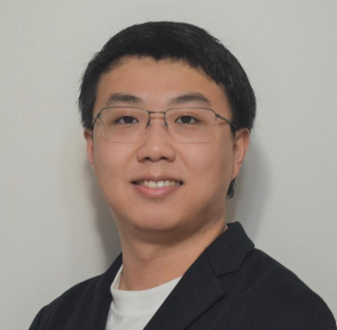Need Help?
26 July 2024
Interview with Dr. Yifan Zhao—Winner of the Batteries Outstanding Reviewer Award

Name: Dr. Yifan Zhao
Affiliation: Global Research and Development Center, General Motors, Warren, US
Research Interests: electrochemistry; energy storage materials and interphases; lithium sulfur batteries; lithium-ion batteries; solid-state electrolyte; and multivalent metal-ion batteries
Self-introduction:
Dr. Yifan Zhao is currently a researcher at the General Motors R&D center, Warren, Michigan. Dr. Zhao graduated from Zhejiang University, China with a bachelor’s degree and earned a master’s from the University of Southern California, USA. He obtained a Ph.D. from the University of California Riverside, USA, where he focused his work on lithium sulfur batteries. In GM R&D, his research is focused on advanced energy-storage materials and interphase studies.
The following is an interview with Dr. Yifan Zhao:
1. Could you briefly introduce yourself to our readers and tell us a little bit about your fields of interest?
I presently serve as a researcher at General Motors R&D center, located in Warren, Michigan. My academic journey began at Zhejiang University, where I earned my bachelor's degree, followed by a master's degree from the University of Southern California. Subsequently, I obtained my Ph.D. in Material Science and Engineering from the University of California, Riverside, focusing my research on lithium sulfur batteries.
Within GM R&D, my focus lies in investigating advanced energy-storage materials and interphase studies, with the overarching goal of enabling higher-energy-density, lower-cost, and safer batteries for electric vehicles.
I am interested in lithium metal batteries, lithium sulfur batteries, and other advanced high-energy-density or low-cost active materials and solid-state electrolytes.
2. Could you elaborate on how you initially learned about the Batteries journal? Furthermore, what inspired you to apply for the Batteries 2023 Outstanding Reviewer Award?
When I read and write papers, I always come across the Batteries journal. Many of its articles are of great interest to me. I was honored to serve as a peer reviewer for the Batteries journal. I enjoy the reviewing process because it allows me to see the latest articles first, provide my suggestions, and engage in academic discussions with the authors.
3. Which research topics do you think will be of particular interest to the research community in the coming years?
In the realm of battery-related research, my focus lies in exploring the realms of low-cost, fast-charging, and safe next-generation batteries, whether at the material, cell, or pack level, and this will captivate my interest for the foreseeable future. These include Na-ions, sulfur-based cathodes, solid-state batteries, etc. These areas of study are already ablaze with activity, emerging as prominent topics of discussion. Other than that, since AI is pretty powerful in tools used in daily life, studies on AI-empowered batteries will also be interesting.
4. What is your opinion of the open access model of publishing?
When I was in university, I had access to all publications without understanding the concept of open access (OA). I held biases against OA journals, assuming some lacked quality. However, upon starting my career in the industry, my perspective shifted. I realized that OA does not equate to poor quality. I began to appreciate the advantages of open access publications.
As a reader, OA enables unrestricted access to research, anytime and anywhere, at no cost. There is no need for VPN access or payment, making it more accessible. As an author, there are also benefits. OA enhances the impact of research through increased citations, readings, and downloads.
5. Which qualities do you think reviewers need? Do you have anything to say to other reviewers?
Firstly, professionalism is paramount. Reviewers must be experts in their field to offer suggestions and judgments from a professional standpoint. Their feedback should genuinely enhance the manuscript. I understand that receiving revision requests as an author can be frustrating, especially if they lack relevance or professionalism. Such requests waste authors' time and can diminish the journal's impact on the author.
Secondly, timeliness is essential. Authors often have publication deadlines to meet, and reviewers should not cause unnecessary delays.
Thirdly, critical thinking is crucial. Reviewers need strong critical thinking skills to thoroughly evaluate the methodology, results, and conclusions of the manuscript. They should identify both the strengths and weaknesses, offering constructive feedback for improvement.
6. What do you think are the main criteria that should be taken seriously in the process of reviewing manuscripts?
Originality, significance, and the interest to readers is most important. Other than that, the logical flow, and whether the conclusion is supported by content and references, also need to be considered.
7. What’s the secret to a happy scientific life? Have you ever encountered any difficulties conducting research, and how did you overcome them?
No expectation is the best expectation. Before an experiment, I usually do not keep positive hopes for the result, so that I will not be disappointed by the result. And finding a way to keep a work–life balance is also important to keeping a happy scientific life. Overcoming difficulties in research is no different to overcoming difficulties in life. Take it easy, do more literature research, ask for help, take a break, and work hard.

